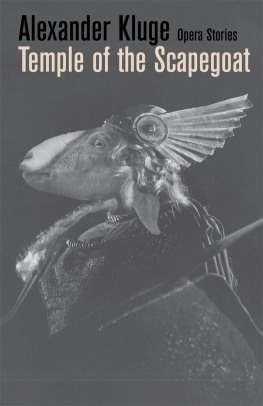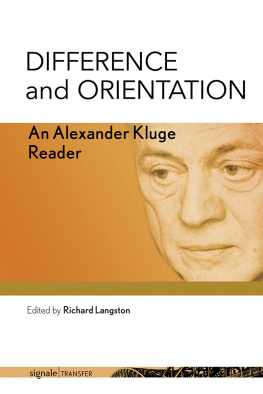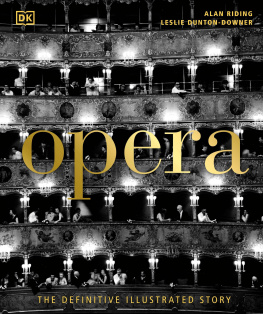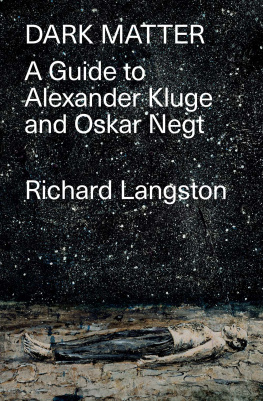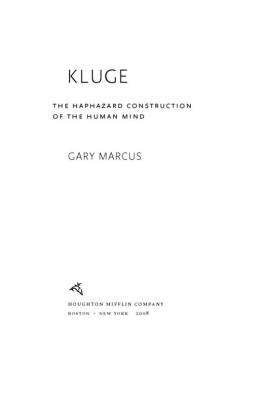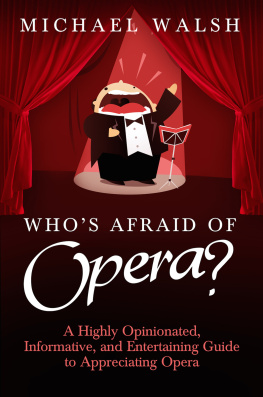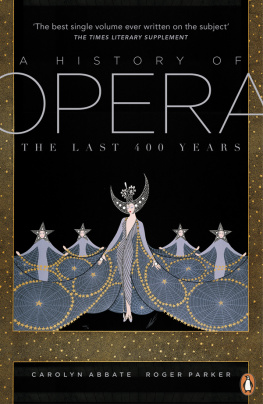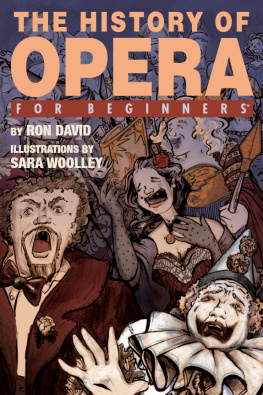Temple of the Scapegoat
Also by Alexander Kluge
FROM NEW DIRECTIONS
Cinema Stories
The Devils Blind Spot
Copyright 2018 by Alexander Kluge
Translation copyright 2018 by Isabel Fargo Cole, Donna Stonecipher, Nathaniel McBride, Wieland Hoban, Martin Chalmers & Martin Brady
All rights reserved. Except for brief passages quoted in a newspaper, magazine, radio, television, or website review, no part of this book may be reproduced in any form or by any means, electronic or mechanical, including photocopying and recording, or by any information storage and retrieval system, without permission in writing from the Publisher.
Published by arrangement with Alexander Kluge.
PUBLISHERS NOTE : Most of Temple of the Scapegoat is translated by Isabel Fargo Cole (sections IIII) and Donna Stonecipher (sections IVVI) with the exception of the following pieces: Total Commitment, In the Last Year of his Life, Snow on a Copper Roof, Commitment to a Colleague with a Sore Throat, and Lost Sketch by John Cage by Nathaniel McBride; The Phenomenon of the Opera, Lohengrin in Leningrad, Gtterdmmerung in Vienna, and Napoleon and Love, by Martin Chalmers; Correct Slowing-Down on the Transitional Point between Terror and an Inkling of Freedom, When I see you, I must weep, Sunday, August 4, 2013, Elmau, Night of Decisions, and The Complete Version of a Baroque Idea from Christoph Schlingensief by Wieland Hoban; Temples of Seriousness and The Original Form of Opera by Martin Brady.
Manufactured in the United States of America
New Directions Books are printed on acid-free paper
First published as a New Directions Paperbook (ndp1395) in 2018
Library of Congress Cataloging-in-Publication Data
Names: Kluge, Alexander, 1932 author.
Title: Temple of the scapegoat : opera stories / Alexander Kluge ; translated by Isabel Fargo Cole, Donna Stonecipher & Martin Chalmers.
Other titles: Tempel der Sndenbock. English.
Description: New York : New Directions Publishing, 2018.
Identifiers: LCCN 2017041785 (print) | LCCN 2017048115 (ebook) | ISBN 9780811227490 | ISBN 9780811227483 (alk. paper)
Subjects: LCSH : Opera.
Classification: LCC ML 1700 (ebook) | LCC ML1700 .K 5713 2018 (print) | DDC 782.1dc23
LC record available at https://lccn.loc.gov/2017041785
eISBN: 9780811227490
New Directions Books are published for James Laughlin
by New Directions Publishing Corporation
80 Eighth Avenue, New York 10011
Drama of the Soul and the Body.
Opera by Emilio de Cavalieri from 1600.
Preface
The oldest opera, performed not in an opera house but in a church, was written in the year 1600. In the following 417 years, around 80,000 operas have been composed. When once asked the reason for my lifelong fascination with these enigmatic musical dramas, I had no ready reply. My English grandmother would have had a word for the plot of most of these dramas impractical. Why does the public, in its classic sense (the bourgeoisie; earlier, the aristocracy), erect templelike buildings for operas on the central squares of its cities, splendid as parliaments, on an equal footing with the stock exchange or the law courts?
What moves me in the music is something I cannot express in words. But I can say with certainty that the part of me that responds to the operas music is not the part preoccupied with the drama performed. Different parts of my soul allow operas, in all their dreamy, unrealistic absurdity, to whip up the surface of my inner seas until a boat might easily capsize. I cant help crying. I know that what creates within me the antirealistic spark suspending all the laws of reality is always two irreconcilable phenomena the story and the music, neither one more important than the other.
If I cant explain why the SPHINX OF THE OPERA enthralls me, still less can I explain the utility of watching or listening to operas. What is the use of operas in wartime? Ernest Hemingway gives an example. After 1918, hubris drove the Greeks (with plenty of artillery, horses, and trumpets) to advance almost to the Turkish capital of Ankara. They were beaten back. Now Turkish commanders controlled the city of Smyrna, where the Greeks had lived for more than a thousand years. In the evening theyd go to the citys opera house. According to Hemingway, it reminded them of their stays in Paris and their fluency in French. Captivated by the Bellini opera, they neglected to give the command to burn down the entire city. One southwestern district was spared. This was where the brewery belonging to my grandmothers brother stood. He personally regarded opera as superfluous. But Herbert Hausdorfs property and life were saved by operas power to distract even barbarians.
ALEXANDER KLUGE
I The Opera Principle
Total Commitment
He was a singer who gave more than his all. Dramatic renunciation. He would forget to spare his own voice, with the result that during many performances he would become vocally bankrupt, only capable of still displaying technique. His voice was rough and gravelly, but possessed a solid and highly metallic core. It would, wrote the critic of the New York Times, be difficult to surpass his cri de coeur of Ah, la maledizione in Rigoletto. By contrast, the critic of the Washington Post, while acknowledging that the baritones singing possessed a certain aplomb, declared it to be without any stylistic delicacy. That wounded him deeply.
Leonard Warren, born Leonard Warenoff in New York in 1911, took over the role of the Doge in Simon Boccanegra from the legendary Lawrence Tibbett. The part put him among his generations leading baritones. He was UTTERLY UNSPARING of himself in defending the position hed so strenuously sought, while maintaining a reputation for being sensitive and refined. However, it was precisely this, the QUALITY OF FEELING in his singing, that was disputed. The critic at the Washington Post was willing to grant him only a certain NATURAL POWER .
March 4, 1960, was the opening night of Verdis La Forza del Destino at the Metropolitan Opera House in New York. Leonard Warren sang the part of Don Carlos, brother to the unfortunate Leonora (Renata Trebaldi). Following the friendship duet between Alvaro and Don Carlos there was a pause. Warren seemed to be having difficulties beginning Don Carloss aria. The great man gave a sigh. He was about to come to the O gioia before the stretta. Suddenly he froze. Leonoras locket slipped from his hand, and he fell, according to the Washington Post, first with his chest, then with his head to the ground. The fall was only too real. The audience took fright. At his side, the singer playing Alvaro cried out: Lennie, Lennie! Stage hands ran in from the wings and saw blood dripping from his broken nose. Taking turns, the stage manager Osie Hawkins and the tenor Richard Tucker delivered mouth-to-mouth resuscitation to the lifeless man. Dr. Adrian Zorgniotti, the Mets house doctor, could do nothing more than confirm the baritones death. A half hour passed in confusion. No one had dropped the curtain. At this point, Rudolf Bing, the director of the Met, came on stage and addressed the audience: This is one of the saddest moments in the history of the Metropolitan. May I ask you all to rise. In tribute to one of our greatest performers. I am sure you will agree with me that it would not be possible to continue with the performance. Only then was the colossus carried from the stage. The critic at the

